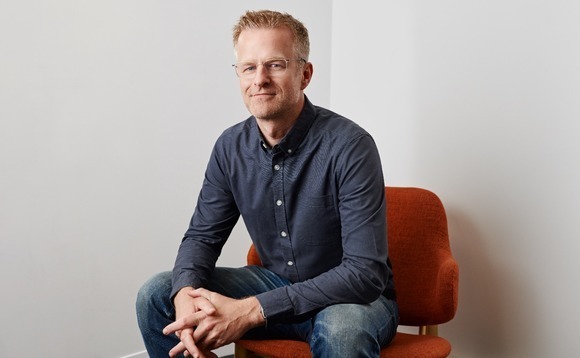
Deal focus: Zeller makes its presence felt

Less than a year after launching its digital payments-led product suite, Australia-based Zeller has accumulated 11,000 merchant customers, raised over USD 100m, and achieved a USD 750m valuation
Zeller was conceived as a means of addressing longstanding pain points around digital payments in Australia, but it was born into a post-pandemic environment with businesses on the cusp of reopening after extended lockdowns. The digital transitions contemplated at this point set the scene for a remarkable surge in user uptake.
"Signing up over 11,000 Australian businesses since May 2021 absolutely exceeded our expectations, but it was indicative of the pressing need for disruption and competition in the Australian payments sector," said Ben Pfisterer, who founded Zeller with Dominic Yap and serves as CEO. Both previously worked for global payments business Square in Australia.
"We saw, and continue to see, healthy spikes in new businesses opening alongside established business reassessing their financial products off the back of tough trading conditions. Despite the challenging economic conditions that impacted our customers over the past several years, it was a unique timing for us to deploy Zeller in Australia."
This rapid operational ascent has been accompanied by increased capital raising activity. Zeller recently closed an AUD 100m (USD 73m) Series B led by US-based venture capital firm Headline. Australian superannuation fund Hostplus came in as a new investor, while the likes of Square Peg Capital, Addition, and Spark Capital re-upped.
The company has raised AUD 181m since its founding in June 2020 and USD 150m since its service launched. The Series B values Zeller at more than AUD 1bn, up from AUD 400m in the Series A in early 2021. Square Peg and Apex Capital were the earliest investors, providing seed funding in 2020.
It is claimed that four in five users switch from traditional banks. According to Pfisterer, most Australian merchants typically use as many as five different software or financial services solutions to manage their finances – payment terminals, transaction accounts, and expense management tools, as well as different online payment processors and lending providers.
"What's even more challenging is that these systems and tools are usually completely disconnected, costing business owners time and efficiency in managing their day-to-day finances and cash flow," Pfisterer said. He noted it is a common problem in developed markets, where banks with ageing tech stacks work alongside – but not in partnership with – fintech and technology providers.
Defining its domain
Zeller offers a fully integrated payments and financial services solution, including a point-of-sale terminal, a business transaction account, and a Mastercard. Omnichannel commerce capabilities will soon be introduced, enabling merchants to use Zeller when selling products or sending invoices online, and then track sales and analyse payments data across every sales channel.
Other likely expansion areas include expense management and lending. The goal is to offer a wide variety of financial services, incorporating whichever financial or payments products a business owner may need at any stage of their lifecycle. Zeller plans to launch seven new business units on the back of the Series B.
Airwallex, an existing Australia-founded fintech unicorn, has already moved from payments to the financial cloud, with a product portfolio encompassing bank accounts, cards, expense management, and rewards programs. It will launch lending services this year. CEO Jack Zhang has said he hopes to become to financial infrastructure what Google Cloud is to technology infrastructure.
Pfisterer's ambitions for Zeller are not dissimilar. The goal is to "reimagine business banking for Australian merchants" by delivering what he claims will be the country's first full-service financial operating system. "We see it as multiple fintechs in one – all of which are seamlessly integrated and connect with the other software platforms that a business uses to run their operations," he added.
Airwallex, which was most recently valued at USD 5.5bn, has expanded across Asia Pacific and into the Middle East, Europe, Africa, and the US. Zeller has also built its business model with a view to serving global markets, but this is a long-term intention. For the present, its focus is on Australia.
The local market isn't without its complications. Fintech M&A activity has been rife in the past 12 months, with Square picking up buy now, pay later platform Afterpay and two of the country's original neobanks – 86 400 and Up – acquired by traditional financial institutions. Reduced competition may make Zeller's offering more distinct, but Pfisterer isn't enthused by the trend.
"Australia is a prime example of a financial services landscape in which the incumbents have acquired newer fintech and payment solutions in an attempt to remain competitive – yet the real person who suffers in this equation is the business owner, due to a lack of competition and underinvestment in innovation," he said.
Latest News
Asian GPs slow implementation of ESG policies - survey
Asia-based private equity firms are assigning more dedicated resources to environment, social, and governance (ESG) programmes, but policy changes have slowed in the past 12 months, in part due to concerns raised internally and by LPs, according to a...
Singapore fintech start-up LXA gets $10m seed round
New Enterprise Associates (NEA) has led a USD 10m seed round for Singapore’s LXA, a financial technology start-up launched by a former Asia senior executive at The Blackstone Group.
India's InCred announces $60m round, claims unicorn status
Indian non-bank lender InCred Financial Services said it has received INR 5bn (USD 60m) at a valuation of at least USD 1bn from unnamed investors including “a global private equity fund.”
Insight leads $50m round for Australia's Roller
Insight Partners has led a USD 50m round for Australia’s Roller, a venue management software provider specializing in family fun parks.







